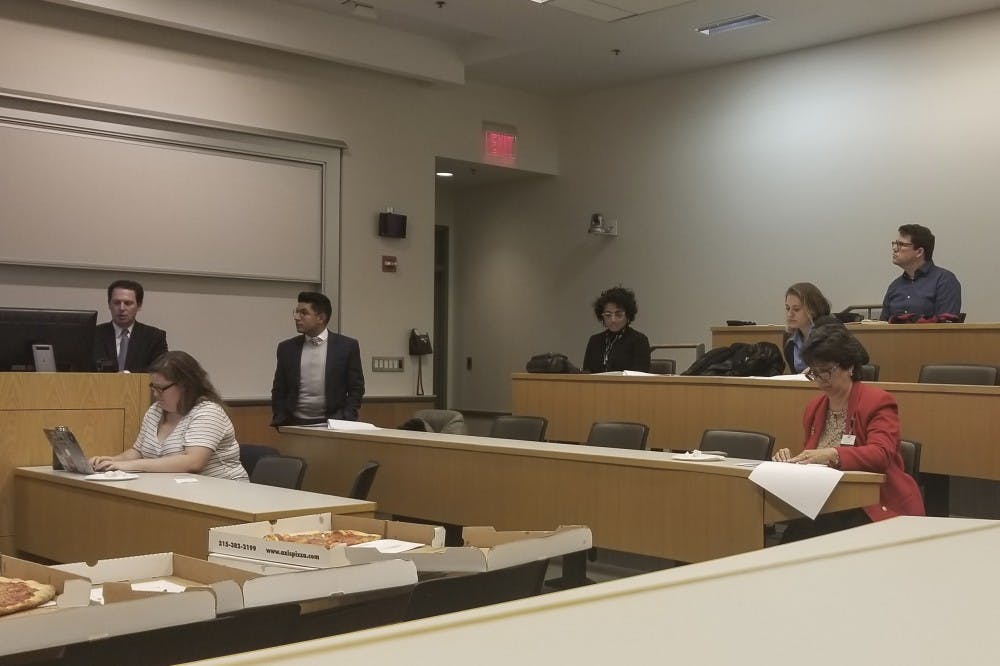
Administrators from Student Registration and Financial Services hosted an event on Wednesday to clarify the term "highly-aided" to students.
The event, jointly hosted by SRFS and student group Penn First, included a presentation explaining the "highly-aided" term. Students were also able to ask administrators questions about the initiatives and resources available to them. Approximately a dozen students and six administrators attended the Nov. 28 event, titled "Discussing Highly Aided Initiatives."
Penn began using the term “highly-aided” this past summer in response to student confusion over the previous terminology of "high-need." Highly-aided students are defined as those with a family income of $65,500 or less, typical family assets, and a parent contribution of $4,500 or less. Since then, Penn has rolled out new programs for these students, such as laptops for incoming freshmen and summer funding for unpaid or underpaid internships for upperclassmen.
At the event, Senior University Director of Financial Aid Elaine Papas-Varas announced that SRFS will provide highly-aided students with financial assistance for graduation regalia for the second consecutive year. Papas-Varas said SRFS will also waive the fee for the College Scholarship Service Profile, which students fill out yearly to apply for financial aid.
At the beginning of the fall semester, Penn also appointed two new counselors who specialize in serving highly-aided students.
SRFS will continue to provide partial grant funding for students taking at least two course units during the summer, Papas-Varas added. However, students can only access these benefits upon request, and SRFS will provide financial assistance based on need.
Graduate students at the event, however, raised concerns that Penn's growing support for highly-aided undergraduate students has not been equally extended to first-generation, low-income graduate students.
“Undergrad students aren’t the only students who are classified as first-generation and/or low-income,” said Graduate School of Education doctoral student Will Anyu. “Graduate and professional students, especially students who aren’t fully funded, pay so much toward the institution, especially international students."
In response to Anyu's concerns, SRFS Executive Director Matt Sessa said the highly-aided initiatives are tailored to the traditional undergraduate experience. Sessa added that SRFS has had discussions with the Graduate and Professional Student Assembly to create a database of outside grants and scholarships for FGLI graduate students.
The Daily Pennsylvanian is an independent, student-run newspaper. Please consider making a donation to support the coverage that shapes the University. Your generosity ensures a future of strong journalism at Penn.
Donate






